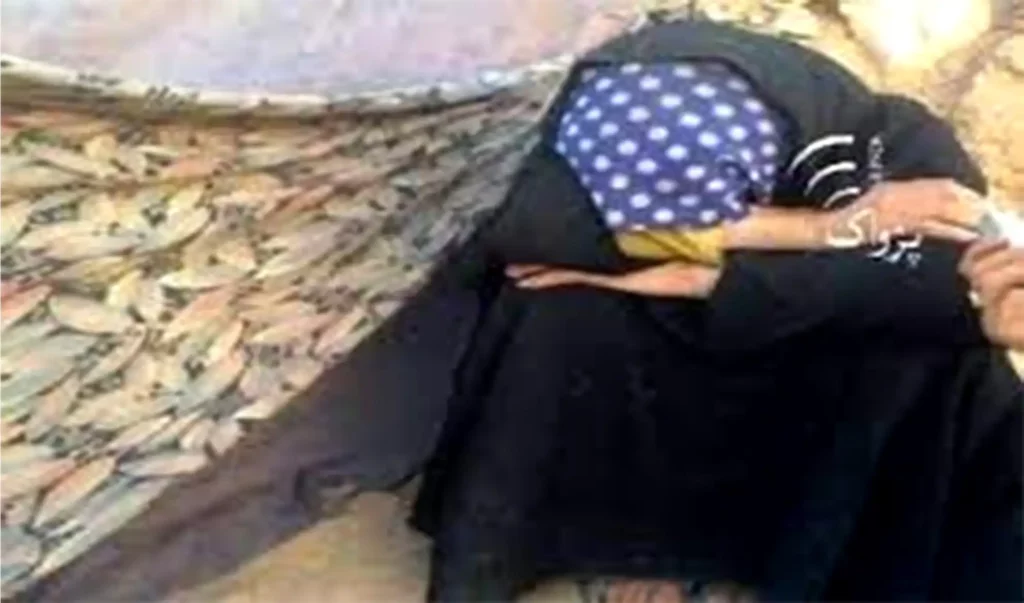FEROZKOH (Pajhwok): Women drug addicts in western Ghor province complain they are often slighted and even physically abused at times by local people.
Latifa, 38, lives on the outskirts of Ferozkoh along with her husband and two children. She grumbles about economic hardships and social problems, including ill-treatment by members of the general public.
The woman, who became a drug addict about five years ago, told Pajhwok Afghan News her husband too was a druggie. With time, she and one of her two daughters also became addicted to drugs.
Latifa recalled: “My husband had been to Iran for work 10 years ago. On his return to the country, we found out he was a drug abuser.
“Here he made addicted friends. My daughters and I also slipped into addiction. My spouse took drugs along with his friends inside our house. Subsequently, we also suffered this agony.”
As the family slipped into the use of narcotics, its members are experiencing physical abuse and insult from area people. Caught in a host of problems, they are also reeling from poverty.
She said: “People, especially children, beat us with sticks or hurl stones at us, when we go begging for bread. They refuse to give us bread, saying it is not good to give addicts food.
“Besides verbal insult, we feel harassed and hated by the people of the community. We don’t know what to do,” she added.
Latifa has made many attempts at getting rid of the addiction menace, but has not succeeded because of the easy availability of drugs in the area — like other parts of the country.
She revealed her husband and his friends give her and her children drugs to consume.
In the absence of a rehabilitation centre for women addicts in her locality, she could not quit addiction. No attention had been paid yet to their predicament or enabling them to give up the practice, Latifa protested.
Unaware of her own fate, the woman said her only hope was to see her children rehabilitated. She wants to save them from addiction at all costs.
It is not only Latifa facing a bitter fate. There are hundreds of other women who are faced with a similar destiny in different parts of the country.
Razia 29, is another woman who has been going through an identical anguish over the last six years because of her husband’s addiction.
Razia shared with Pajhwok the story of her addition, said: “My husband has been smoking crack for eight years. Initially, we didn’t know anything about it because he mostly remained out of home.
“It was about six years ago when he came home along with two friends and began smoking crack. The house was filled with smoke. I tried to expel him, but he got angry and beat me…”
It was biting cold, Razia said, adding the practice continued for a few more nights. As a result, we all became addicted to drugs.”
After addiction, they were insulted a lot by neighbours and area people. Razia and her husband are seeking refuge in drugs at a time their son is toiling it out in Iran.
“My 14 years old son has left the country for Iran due to our poverty. My son knew about the addiction of his father four years ago. Since then, we know nothing about our son,” she continued.
Razia hopes her son, unlike his parent, is not doing drugs. She does not want to see her son in the situation she and her spouse are in.
Although she longs for rehabilitation, Razia thinks it will be impossible due to her trouble-free access to drugs and lack of rehabilitation centres for women.
Razia was treated several times in her house but the result was nor favorable each time. She demands a special rehabilitation centre for female addicts and their children.
Poverty, unemployment and lack of awareness about the harms of drugs are among key reasons for the addiction of men, women and children in the community.
According to provincial officials, there are more than 300 female addicts in Ghor and a team of the 20-bed rehabilitation centre is treating them.
Public Health Director Abdul Sattar Muwafiq said they are struggling to enhance the capacity of the 20-bet rehabilitation centre and make the treatment of female addicts possible.
He said: “We have requested the authorities to increase the number of beds from 20 to 50 beds at the rehabilitation centre and and enable it to extend services to female addicts as well.”
The public health director clarified the team of the rehabilitation centre was currently treating female addicts in their houses — a service that does not adequately address the problem.
aw/mud







GET IN TOUCH
NEWSLETTER
SUGGEST A STORY
PAJHWOK MOBILE APP